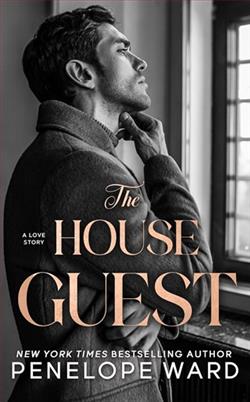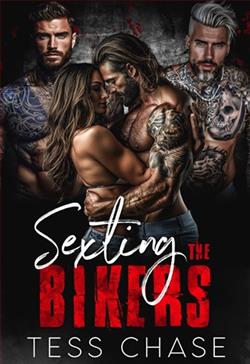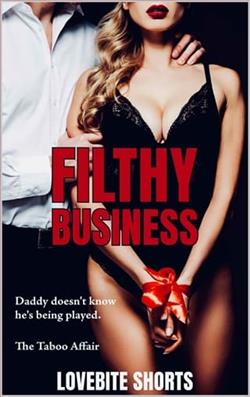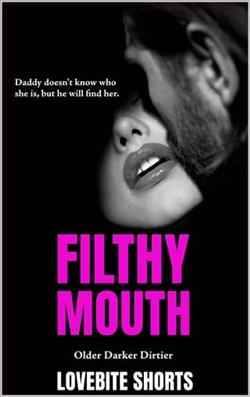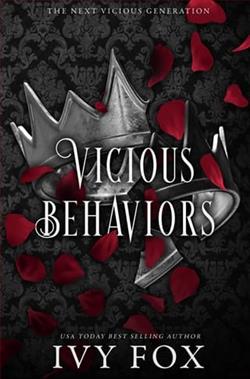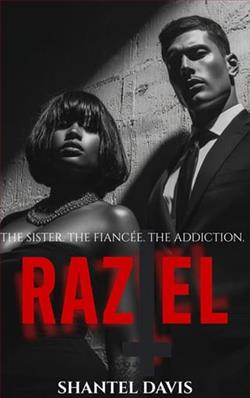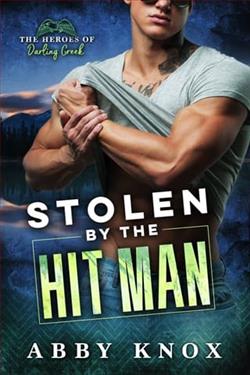Page 8 of Garden of Lies
“Anne Clifton wrote poetry?”
“No, her client did. Lady Fulbrook is a wealthy but extremely reclusive woman. She employed Anne to take dictation and transcribe the poems on a typewriter. Anne said that Lady Fulbrook is recovering from a case of shattered nerves and that the doctor prescribed writing poetry as a form of therapy.”
Slater was briefly distracted. “What sort of poetry?”
Ursula felt the heat rising in her cheeks. She assumed a professional tone.
“The poems appear to be devoted to the themes of love.”
“Love.” Slater sounded as if he was unfamiliar with the word.
Ursula waved one gloved hand in a vague way. “Endless longing, the travails of lovers who are separated by fate or circumstances beyond their control. Transcendent waves of passion. The usual sort of thing.”
“Transcendent waves of passion,” Slater repeated.
Again he spoke as if the concept was utterly foreign to him.
She was quite certain she caught a flash of amusement in his eyes. She tightened her grip on her satchel and told herself that she would not allow him to draw her into an argument about the merits of love poetry.
“Although the themes are obvious, there are some odd elements in the poems—numbers and words that don’t seem to suit the meter. That’s why I’m not sure if I’m transcribing the dictation properly,” she said. “As I explained, over time a skilled secretary’s stenography becomes a very personal code.”
“But you can decipher Miss Clifton’s code?”
“I am attempting to do so. But I’m not sure what good it will do.” Ursula sighed. “It’s poetry, after all. What can it tell me about the reason for Anne’s murder?”
“The first question you must ask is, why did Miss Clifton go to the trouble of concealing her notebook?”
“I know, but I cannot imagine a reasonable answer.”
“The answer is always concealed within the question,” Slater said.
“What on earth is that supposed to mean?”
“Never mind. You suspect that Anne Clifton might have become involved in a liaison with the client’s husband, don’t you?”
“With Lord Fulbrook, yes, it has crossed my mind.”
Slater was starting to take an interest in the situation, Ursula thought. A great sense of relief came over her. Perhaps she would not be alone in this inquiry.
“Any idea why Fulbrook would go to the trouble of murdering Miss Clifton? Not to be callous about such matters, but high-ranking gentlemen frequently discard mistresses. There is rarely any need for them to resort to violence.”
Ursula realized she had a death grip on the handle of the satchel.
“I am aware of that, Mr. Roxton,” she said through her teeth. “Which makes Anne’s death all the more suspicious.”
“What of Lady Fulbrook? If she was jealous of her husband’s attentions to Anne Clifton—”
Ursula shook her head. “No, I’m quite sure that is not the case. According to Anne, Lady Fulbrook is very unhappy in her marriage. I was given the impression that she is also quite timid. Evidently she goes about in fear of her husband, who has a violent temper. It is difficult to envision such a woman committing murder in a fit of jealousy.”
“Jealousy is a wildfire of an emotion. Very unpredictable.”
In that moment Ursula was certain that Slater viewed all strong emotions, in particular those associated with passion, as wildfires to be contained and controlled at all costs.
She straightened her shoulders. “There is another factor to consider. Anne told me that Lady Fulbrook never leaves her house. That is not just because of her poor nerves. Evidently her husband does not allow her to go out unless he, personally, escorts her.”
“So, we’re back to Lord Fulbrook as our main suspect. Do you think Anne had an affair with him?”
“I think it’s possible,” Ursula said. “If that was the case, I doubt very much that she was passionately in love with him. I don’t think Anne would have trusted any man with her heart. But she had her financial future to consider.”









